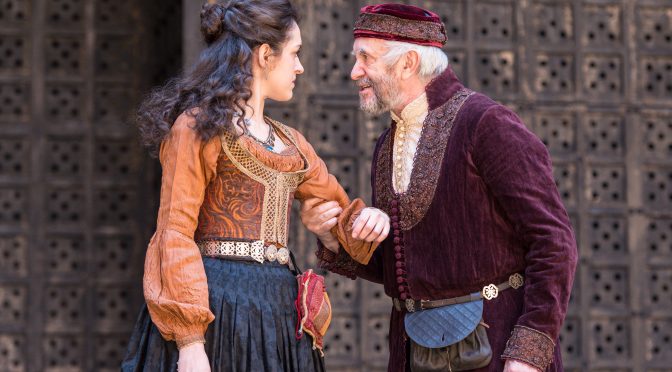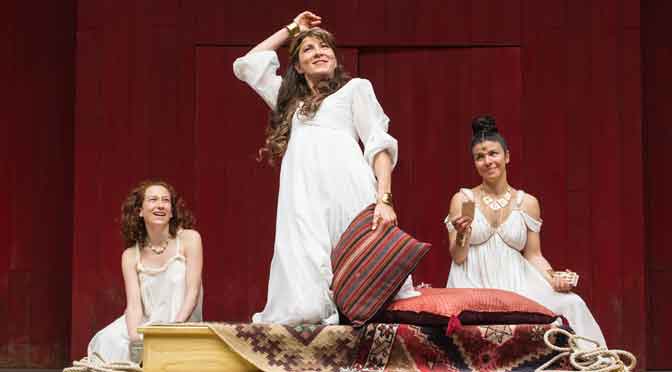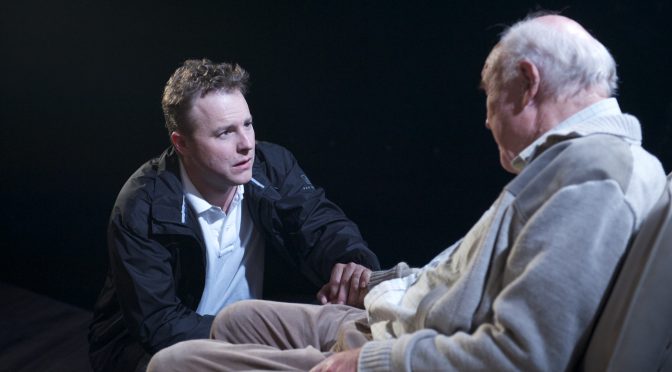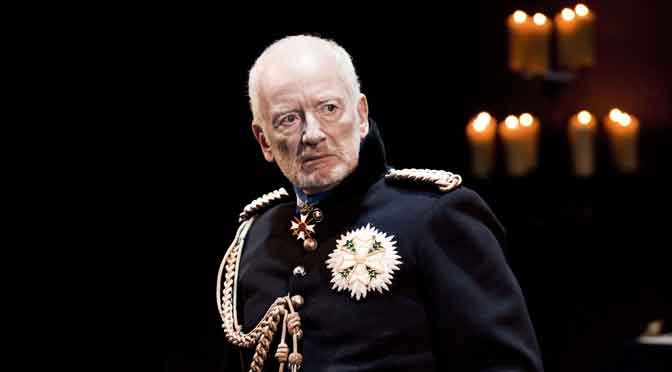Jonathan Munby’s new production will be memorable alone for marking Jonathan Pryce’s magnificent debut at Shakespeare’s Globe. Not to belittle Pryce’s achievement – it would have been a surprise if he wasn’t right for the role – the bigger story is that the whole production is of a consistently high standard, making it one of the best I’ve seen at the venue.
Munby embraces the play’s sometimes off-putting mix of comedy and tragedy. The broad humour that does so well at the Globe is present, most notably in Stefan Adegbola’s servant, Launcelot, going down a storm by pulling audience members on to the stage. And there are particularly fine comic performances from Dorothea Myer-Bennett and David Sturzaker, as Nerissa and Gratiano.
At the heart of it all are those most concerned with the theme of justice: the woman who masquerades as a judge, Rachel Pickup as a glacial Portia, and Dominic Mafham as the titular merchant Antonio, imperiled by the word of the law. These parts anchor the show and reveal the structure of Munby’s grasp.
As for the tragedy, no excuses are made for the text’s anti-Semitism, displayed in all its cruelty and violence. Spat at and assaulted, Pryce plays it straight, which all the more demands our attention. He is joined onstage by his own daughter Phoebe Pryce, playing Shylock’s child Jessica, who is full of passion and seemingly born for the role. Culminating in a heart-rending scene as she sings while her father is forced to be baptised, it’s a fine finale that confirms how brave this production is.
Until 7 June 2015
Photos by Manuel Harlan




